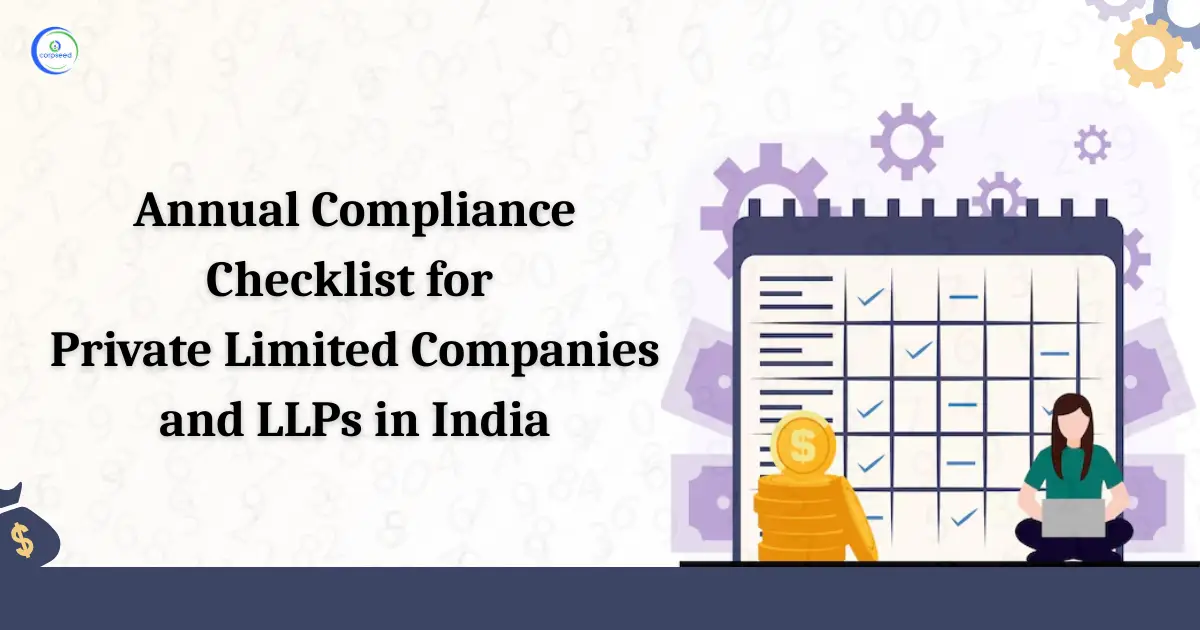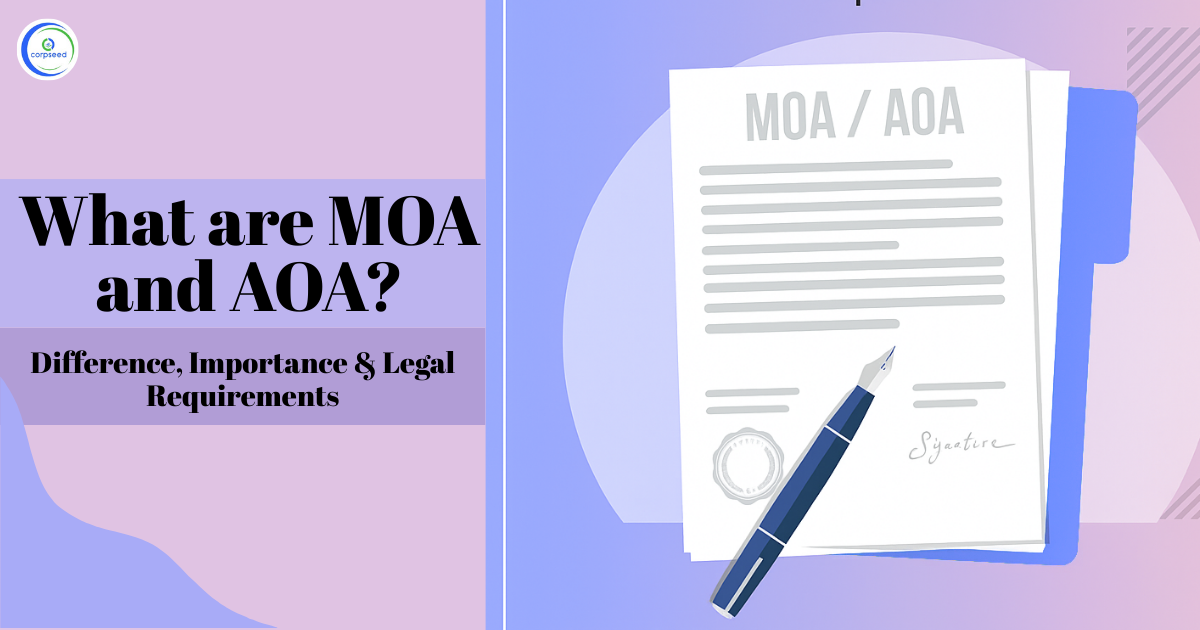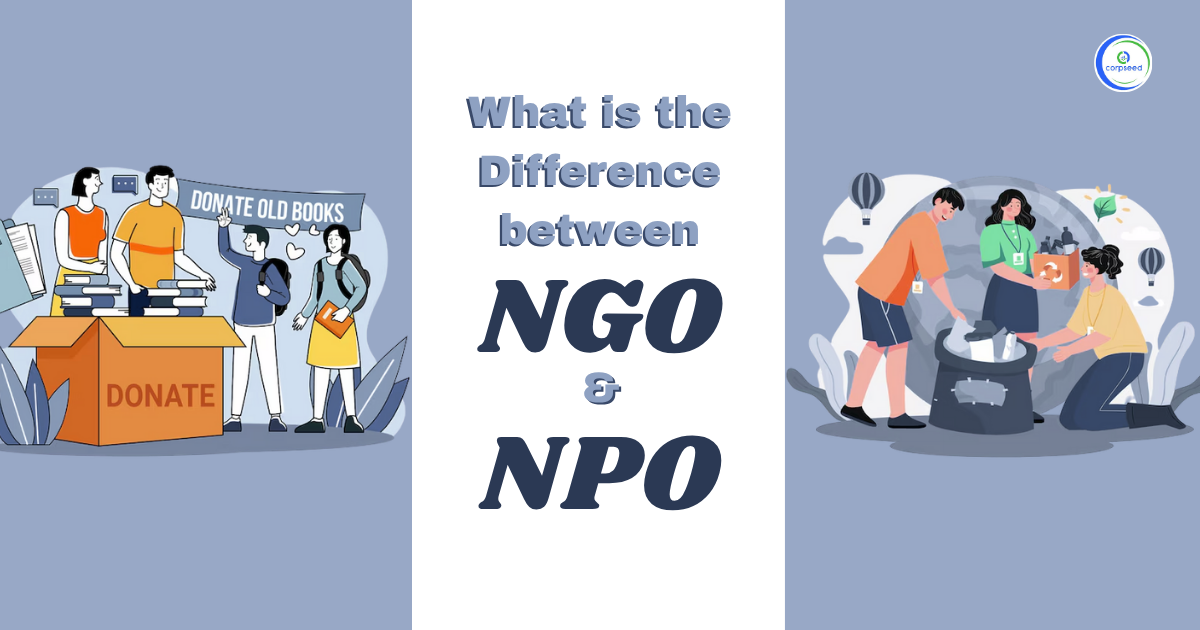What Is One Person Company?
One Person Company (OPC) means a Company that is owned and regulated by a single person. It is a very popular form of business around the world. However, it came in India with the new act, that is, Companies Act, 2013. Earlier there was no provision for a single-person company. It was mandatory to have at least two directors and two members under a Private Limited Company but due to the increase in the number of single entrepreneurs, there was an urge to bring out the new concept of OPC. As the shareholders of the Company are considered as the owners of the company and where the OPC can have only one shareholder, he/she enjoys the right of an owner. Most of entrepreneurs prefer to go with OPC when their business is at the nascent stage, rather than opting for the sole proprietorship.
Read Our Blog: OPC Registration
Table of Contents
Basic Features of One Person Company:
- PRIVATE COMPANY:
OPC is also a form of Private Limited Company. It is further defined under the Companies Act, 2013 that an OPC can be formed by a single person for a purpose that is true and fair in the letter of spirit.
- SEPARATE LEGAL ENTITY:
OPC is a separate legal entity, that signifies that it has some of the same rights in law as a person. It can enter into contracts, sue and be sued, and can own the property. However, in a sole proprietorship, the entrepreneur does not have a separate legal entity.
- NOMINEE:
For incorporating an OPC, the sole member has to necessarily nominate a person at the time of incorporation. The nominee can act in place of the member only when there is death of the member or in case of his/her incapacity to contract.
- MINOR CAN NOT BECOME A MEMBER:
Under OPC, only a major person, that is, who has attained the age of 18 years or above can only become the member of the OPC. As minors are restrained to contract under the Indian Contract Act, of 1872, they cannot become members of the OPC.
- NOT REQUIRED TO BE RESIDENT:
Earlier, for incorporating an OPC, the single owner needs to be resident in India but under the recent amendments, the provision of OPC has also been made available for Non-Residents. Now, anyone can incorporate an OPC in India. Also, for the purpose of calculating the residency status of the applicant, the number of days has been reduced to 120 days from 182 days during the immediately preceding one financial year.
- SUBSCRIBERS CAN BE DIRECTORS ALSO:
The subscriber of OPC, that is, member of the OPC can be the director of the company. He/ She can become both the whole and sole of the OPC.
- INCLUSION OF (OPC) IN NAME:
It is a mandatory requirement to include the words (OPC) in the name of the company, to make it distinguish from other Private Limited Companies.
Read Our Blog: How OPCs Are Different From Private Limited
- LIMITED LIABILITY:
OPC has this feature of having the liability limited up to the extent of the assets of the company. This feature is as it is applicable to any kind of company.
These are some basic features of the One Person Company. A person who is interested in running his own business without interference of any other person, who wants to have full control over the business, should definitely go with the idea of incorporation of OPC. Apart from the above basic features, some other features are also there in an OPC, namely: -
- OPC can be formed with the Authorized Share Capital of at least Rs. 1Lakh, however, there is no such minimum requirement of Paid-Up Share Capital.
- OPC can be converted into any other kind of company voluntarily only after the expiration of two years from the incorporation. However, if the total paid-up share capital of the company exceeds 50 lakh rupees and a turnover of 2 crore rupees, it shall convert itself into either a private or public limited company, after meeting the requirements.
- A person who is a member and director of OPC and a Nominee in OPC cannot become a director/member or nominee in any other OPC.
- OPC can be registered by only a natural person who is a Citizen in India. Any kind of business form cannot register OPC.
What Should Be Opted Sole Proprietorship Or OPC?
The difference between an OPC and Sole proprietorship business is that of the liability of the owner. In the case of a Person Company, members' liability in case of dissolution or winding up is limited, only up to the business assets.
Whereas, in the case of a sole proprietorship business, the liability of the owner is unlimited. It signifies that, the creditors of a sole proprietorship business can recover their business liability from personal assets such as your cars, residential house or any kind of personal assets if business assets are not sufficient to recover their liability.
Restrictions on OPC:
- OPC cannot have more than 15 directors in a company.
- OPC cannot convert itself into section 8 company of the Companies Act, 2013.
- OPC cannot carry on the business of a Non-Banking Financial business or in the business of a Housing Business Company. Also, it cannot invest in the securities of any other company.
Process of Incorporation of OPC:
When the person is reached to the conclusion that, he/she wants to register the company in One Person Company form, the next step is to look at the process of incorporating OPC.
- Approval of name through RUN form:
First the owner shall choose the name of the company which he thinks suitable for business and which is not identical with any other existing company or trademark. For choosing the name, the rules defined in the Companies Act, 2013 must be followed. Once the name is decided, it has to be approved by the Ministry of Corporate Affairs through RUN form.
- Filing of Spice + form:
Now, OPC can be formed through Spice form, part – B, in which we can directly apply for DIN, PAN and TAN, also, there is another form AGILE through which we can apply for GST, ESI, PF of the Company. For filing these forms, the following things need to be required from the nominee and director/member of OPC, namely:
- The digital signature certificates.
- Proof of Identity and Proof of Address.
- Registered office address proof with the latest utility bill of the address.
- Preparation of MOA & AOA in E-form:
When the Spice+ is prepared, the next step id to prepare the MOA & AOA of the Company in E-form. An agile form is also prepared for obtaining GST, EPF, and ESI. These forms are filed along with the Spice+ form.
- Incorporation of Company:
When all the forms are applied on the website of MCA, after scrutinising all the documents applied, the company will get incorporated.
- Certificate of Incorporation:
When the company gets incorporated, the Certificate of Incorporation, PAN, TAN are issued by the MCA.
Compliances Applicable On OPC:
- One board meeting to be held within 30 days of incorporation of the Company.
- Two board meetings to be conducted in one financial year.
- Appointment of Statutory Auditors within 30 days of registration of the Company.
- Filing of Financial Statements in AOC-4 every year.
- Filing of Annual Return in MGT-7 every year.
- Filing of Income tax, GST, EPF, ESI returns as may be applicable.
Exemptions for OPC:
- No requirement to prepare the Cash Flow Statements of the Company.
- No requirement to hold the Annual General Meeting of the Company.
- The quorum is not applicable for OPC.
- Where there is no Company Secretary in the Company, the annual return can be signed by the director of the company.
Conclusion:
In a nutshell, OPC is the most emerging concept, where individuals who are interested in doing entrepreneurship can do so being in the format of a company and getting registered under the Ministry of Corporate Affairs. By choosing OPC over Sole Proprietorship, the individuals get the Goodwill and brand name, resulting in the improvement of creditworthiness. The Investors also go for those organisations only which have high creditability and goodwill in the market. So, to grow a business on your own, must go with the concept of OPC.
This portion of the site is for informational purposes only. The content is not legal advice. The statements and opinions are the expression of author, not corpseed, and have not been evaluated by corpseed for accuracy, completeness, or changes in the law.
BOOK A FREE CONSULTATION
Get help from an experienced legal adviser. Schedule your consultation at a time that works for you and it's absolutely FREE.









